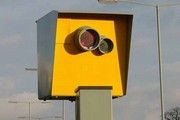 Convicting yourself contravenes human rights |
The 'right to silence' speeding case will be heard next month, reports Motor Cycle News today.
The European Court of Human Rights in Strasbourg will hear on 27 September challenges to Section 172 of the Road Traffic Offenders Act 1988. That’s the section which requires registered keepers of vehicles and others to provide information who was driving at the time of an alleged offence.
Section 172 underpins all speed camera prosecutions, and millions of motorists each year receive Section 172 notices requiring them to identify the driver after their vehicle has been caught on camera.
The problem arises when the notice arrives on the doormat. If a driver then fills in the form, they are effectively signing a confession that violates their ancient right to silence. If they fail to fill in the form or otherwise provide the required information, they are guilty of a different offence.
Paul Smith, founder of the Safe Speed road safety campaign said: "Section 172 has been a useful legislative 'big stick' capable of being used with wisdom and restraint to defend society against dangerous criminals. It should never have been used against millions of motorists who may or may not have committed minor traffic offences. It has been like using the big stick on your little sister. We have now arrived at the point where the big stick will be taken away because it has been abused.
"The tragedy is that S172 has been a useful police power in serious cases where responses could contribute to an ongoing investigation. Now that power will be lost for one reason and one reason only; because it has been misused.
"Once S172 goes, that will be the end of speed camera prosecutions as we know them. And that can only be good news for road safety. As far as I can tell, no one seriously expects the government to win."